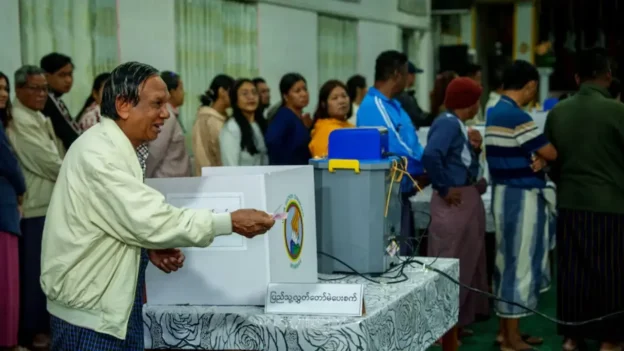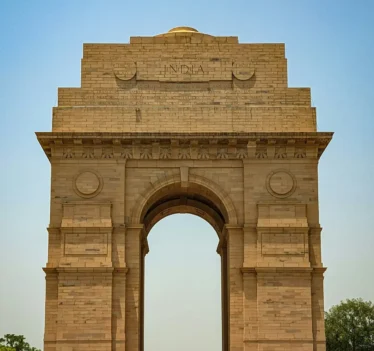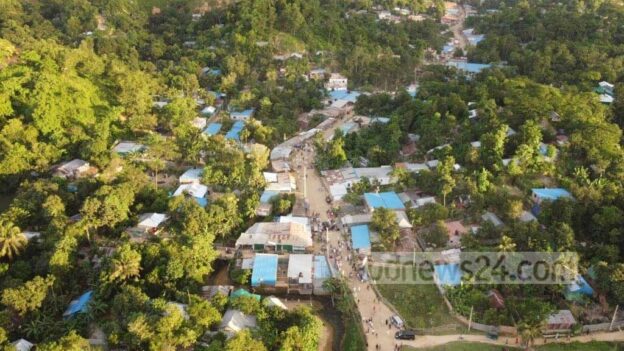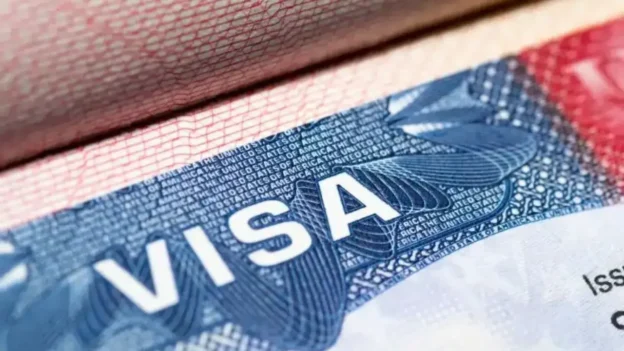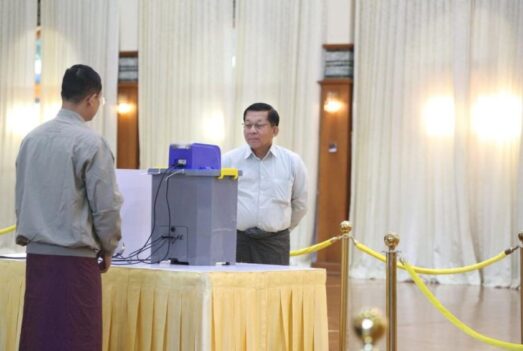On May 10, Bangladesh’s interim government, led by Nobel laureate Mohammad Yunus made a move that stunned the nation and reverberated across South Asia: it imposed a blanket ban on the Awami League—Bangladesh’s oldest and most influential political party—invoking provisions of the Anti-Terrorism Act. The decision came amid escalating political tensions and follows the dramatic flight of former President Sheikh Hasina from the country in August last year. With the Awami League’s activities and digital presence now outlawed, the foundations of Bangladesh’s democratic order appear increasingly fragile.
Democracy in peril
The ban on the Awami League marks the culmination of months of political turmoil in Bangladesh. Founded by Sheikh Mujibur Rahman, who led Bangladesh’s struggle for independence, the party later fell under the leadership of his daughter, Sheikh Hasina. Under her rule, the Awami League maintained an iron grip on the country for over a decade until mass protests finally toppled her government last summer. She now faces accusations of brutal repression during the bloody student demonstrations of July-August 2024.
The interim government has declared the Awami League would remain banned until a special court finishes trying the party and its leaders for their role in killing hundreds of protesters during last year’s demonstrations. Law advisor to the interim government of Bangladesh, Asif Nazrul clarified that the ban would remain in effect until the completion of trials against the party and its leadership over deaths that occurred during anti-government protests last year. This follows the earlier ban on the Bangladesh Chhatra League in October, which was similarly labeled a terrorist organization.
Bangladesh’s Election Commission now faces a pivotal decision: whether to cancel the Awami League’s registration altogether. If revoked, this would prevent the party from participating in future elections—a devastating blow to an organization that has been central to Bangladesh’s politics since 1948.
International Affairs Professor Sreeradha Dutta who teaches at the O.P. Jindal Global University points to the far-reaching consequences of this ban. She argues, “This will have far-reaching consequences across Bangladesh’s political landscape. The Awami League’s substantial support base—nearly 30% of the population—will undoubtedly experience significant anxiety over this development.”
In a stark condemnation of recent political developments in Bangladesh, former Indian High Commissioner to Bangladesh, Ambassador Pinak Ranjan Chakravarty, has voiced serious concerns about the ban on the Awami League party. “Banning Awami League is an anti-democratic move that will not be in the interest of Bangladesh. It smacks of a witch-hunt. It may lead into political turmoil and instability,” he said.
The ban followed days of protests in Dhaka, where thousands demanded action against the Awami League. Meanwhile, the party itself has rejected the ban, calling it “illegitimate”- setting the stage for continued political confrontation.
Role of the newly formed NCP in the ban
The interim government’s ban came just hours after Jatiya Nagorik Committee or National Citizen Party’s (NCPs) southern chief, Hasnat Abdullah delivered an ultimatum demanding a roadmap to outlaw the Awami League. Abdullah threatened mass protests if the government failed to act within the hour, reportedly forcing Yunus’s administration into a corner.
By being one of the important constituents behind the protests in Dhaka that led to the ban, the newly formed party has signaled that it is unlikely to break the longstanding political duopoly of the Awami League and Bangladesh Nationalist Party. Instead, it is eager to replace the Awami League in electoral contests.
The political vacuum created by this ban could fundamentally reshape Bangladesh’s electoral landscape, Professor Dutta observes explaining “While the party was already facing challenges in maintaining electoral support for upcoming contests, this ban effectively creates a vacuum in the political arena, potentially allowing new coalitions and political alignments to emerge and reshape the country’s democratic future.”
Regional repercussions
The timing of the Awami League ban carries particular significance for regional geopolitics. It comes when India finds itself in heightened tensions with Pakistan following “Operation Sindoor,” a targeted strike mission against terrorist infrastructure in Pakistan and Pakistan-occupied Kashmir.
“India will be affected as it has long historic ties with this party and its leaders. It will have to manage the new dynamics that are emerging in Bangladesh,” stated Professor Dutta.
This makes Awami League, a reliable partner for New Delhi in an often complex regional environment. Emphasising this dimension, Ambassador Chakravarty, said “While banning of the AL is a domestic issue, it will impact ties with India because India will be concerned by this undemocratic decision made by an unconstitutional government. India desires a level playing field for all political parties.”
However, India is likely to play a waiting game, opine experts. “India will unlikely change its position till elections take place. It has a way of conveying its disapproval of the ongoing developments,” Professor Dutta suggested.
The deterioration of India-Bangladesh relations could have serious implications for regional stability. Already, the northeastern Indian state of Meghalaya has declared a two-month curfew along the India-Bangladesh border on May 9th, reflecting growing concerns about security and cross-border movements.
Bangladesh’s interim government appears to be walking a diplomatic tightrope. In response to the India-Pakistan tensions, Bangladesh’s Ministry of Foreign Affairs issued a measured statement expressing “deep concern” while urging both countries to “remain calm, show restraint, and refrain from taking any steps that could further aggravate the situation.”
This carefully calibrated response suggests that, despite the ban on the Awami League—a move that “characteristically antagonized India”—Bangladesh’s interim leadership recognizes the need for diplomatic balance in navigating regional tensions.
At the Crossroads: Restoration or Rupture of Democratic Order?
Bangladesh now stands at a critical juncture. The ban on the Awami League represents more than just action against a single political party—it signals potential fundamental changes to the country’s democratic structures and processes.
For a country that has experienced multiple shifts between democratic governance and military rule since its independence in 1971, the current situation raises serious questions about its political future. Will the ban facilitate a more plural democratic environment by creating space for new political forces or will it further entrench political polarization and undermine democratic institutions?
The South Asian chessboard
For India, the banning of its most reliable Bangladeshi ally presents a significant diplomatic challenge. New Delhi must balance its historic relationship with the Awami League against the pragmatic need to work with Bangladesh’s current leadership.
This development could potentially reshape the geopolitical dynamics of South Asia. With India-Pakistan tensions already high, instability in Bangladesh adds another layer of complexity to regional security concerns. Other regional players, including China, which has been expanding its influence in Bangladesh through economic investments, might see opportunities to strengthen their position.
The question remains whether the interim government led by Mohammad Yunus will prioritize democratic restoration or continue down a path that risks further political polarization. Similarly, India must decide how forcefully to respond to the ban on its longtime ally without pushing Bangladesh further away.
As Bangladesh navigates this critical period, the decisions made by both domestic and international actors will determine not just the fate of the Awami League but potentially the trajectory of democracy in Bangladesh and stability across South Asia for years to come.


